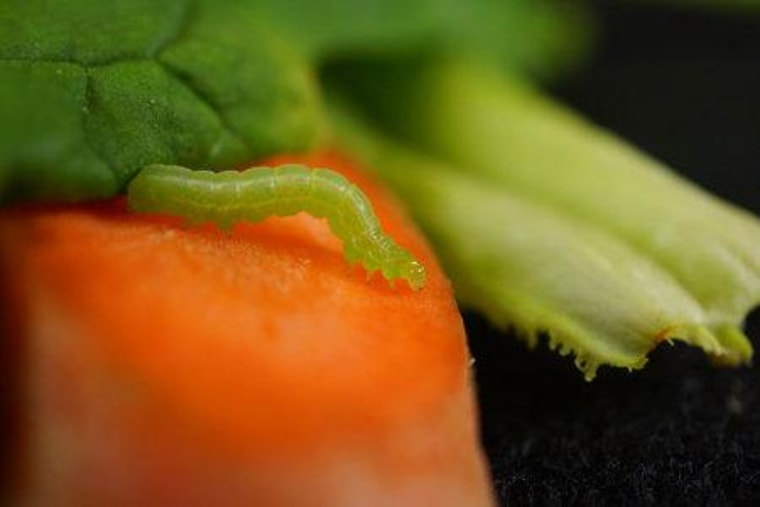The fruits and vegetables lining grocery store shelves respond to light signals, according to a new finding that may have profound implications for how food is stored, when it is eaten and, ultimately, human health.
While biologists knew that certain cells in harvested crops keep living after they are picked from a tree, plucked from a vine, or pulled from the ground, the responsiveness of fruits and veggies to the daily cycle of light and dark is a surprise, said study co-author Janet Braam from Rice University.
"The idea that postharvest you could keep circadian rhythms going is new," the cell biologist told NBC News. "And that it would have a consequence for the accumulation of certain types of metabolites, some of which may have relevance to human health" is also new.
She and colleagues initially found that harvested cabbage suffered less insect damage when subjected to light-dark cycles. The response means the plants are altering the levels of certain chemical compounds known as metabolites that offer protection from insects and other herbivores.
The team went on to show a similar response in lettuce, spinach, zucchini, sweet potatoes, carrots, and blueberries – they all suffered less insect damage when exposed to day-light cycles via the accumulation of bug-resistant metabolites.
"In edible crops, these metabolites also have potent anticancer properties," Braam and colleagues write in a paper published today in Cell Biology.
While there is more work to be done to determine exactly what metabolites are accumulating in the plants and whether the effect is sufficient to warrant a change in the way humans interact with food, the finding could do just that, Braam noted.
John Roach is a contributing writer for NBC News. To learn more about him, visit his website.
